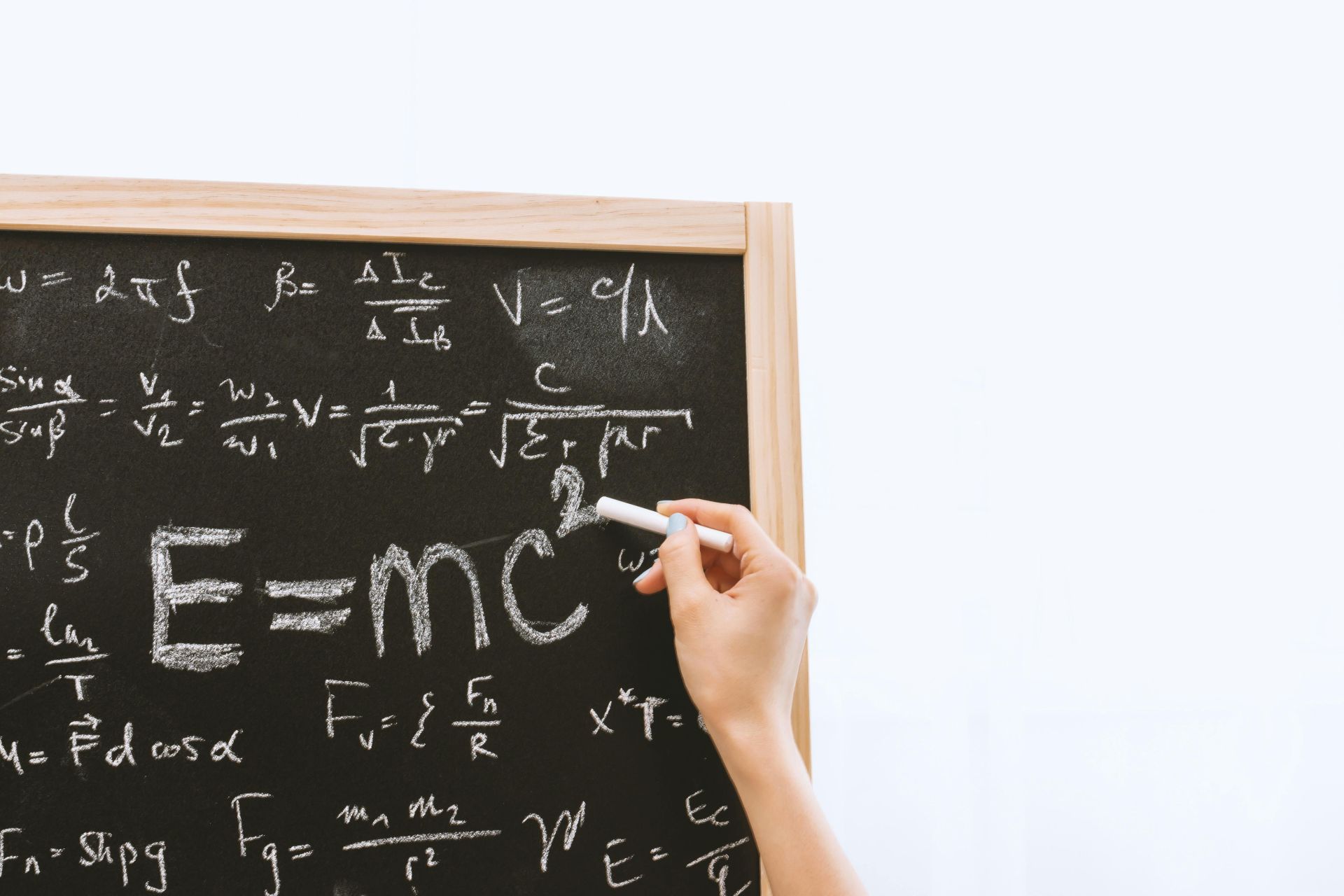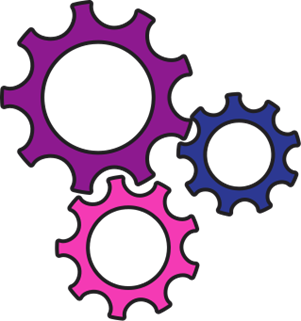
Ralph Waldo Emerson, a champion of individualisation and critical thinking, wrote ‘Do not go where the path may lead, go instead where there is no path and leave a trail’, which resonates deeply with our own home educating journey.
We want our children, and their peers, to be a generation of trailblazers, champions in their own individual fields of choice, and are absolutely loving watching them grow in creative and critical thinking in ways that were simply not possible within the constraining walls of school.
Throughout history, there have been numerous trailblazers who were home educated, shaping their respective fields and leaving indelible marks on the world. These individuals often benefited from the unique, personalised learning environments that home education provided, allowing them to pursue their passions and develop their talents in ways that traditional schooling might not have allowed.
Leonardo da Vinci 1452 – 1519, the quintessential Renaissance man, was largely self-taught. His early education was conducted at home where he learned basic reading, writing, and arithmetic. However, his true education came from his insatiable curiosity and keen observational skills.
Leonardo's apprenticeship with the artist Andrea del Verrocchio in Florence allowed him to hone his artistic talents, but his diverse interests went far beyond art. He meticulously studied anatomy, physics, engineering, and natural sciences through self-directed learning. His notebooks, filled with sketches and writings, reveal a mind constantly at work, questioning and exploring the world around him. Leonardo’s ability to connect disparate fields of knowledge and his relentless pursuit of learning made him one of the most influential figures in art and science, with works like the "Mona Lisa" and "The Last Supper" standing as timeless masterpieces.
Blaise Pascal – 1623-1662, was home educated by his father who created a unique curriculum designed to suit his son. Blaise, however, had other plans and was lured by the ‘dark art’ of mathematics, exploring it on his own until his father recognised his abilities in the subject and encouraged its learning. This led to the invention of an early form of calculator, the Pascaline, and the laying of the foundation of the modern Theory of Probabilities, among other achievements.
Wolfgang Amadeus Mozart – 1756 – 1791, home educated by his father, Leopold Mozart, and showed such prodigious talent that he was performing in the Bavarian court before the tender age of 6. In addition to his musical talent and abilities, Mozart was also highly proficient in mathematics and spoke 5 languages.
Abraham Lincoln – 1809 – 1865, the 16th President of the United States, is another notable figure who benefited from home education. Born in a log cabin in Hardin County, Kentucky, Lincoln had very little formal schooling—only about 18 months in total. Instead, he was largely self-educated, learning from books he borrowed and read by the light of the fireplace.
Lincoln's early education was driven by his own determination to learn. He read avidly, devouring works such as the Bible, Aesop's Fables, and Shakespeare's plays, which shaped his moral and intellectual development. His stepmother, Sarah Bush Johnston Lincoln, played a supportive role, encouraging his love for reading and learning.
This self-directed education laid the foundation for Lincoln’s eloquence, legal acumen, and leadership abilities. His speeches, including the Gettysburg Address, are celebrated for their clarity and power. Lincoln's journey from a self-taught lawyer to a revered president who navigated the nation through its Civil War and abolished slavery is a testament to the transformative power of self-education and perseverance.
Florence Nightingale - 1820 – 1910, the founder of modern nursing, was home educated by her father, William Nightingale. He provided her with a comprehensive education, covering subjects from mathematics to philosophy. This broad education equipped Nightingale with the knowledge and skills she needed to revolutionise healthcare. Her pioneering work in nursing during the Crimean War and her efforts to improve sanitary conditions in hospitals have saved countless lives and established nursing as a respected profession.
Thomas Edison – 1847 - 1931, the prolific inventor and businessman, was home educated by his mother, Nancy Edison, after he struggled in a traditional school setting. Nancy recognised her son's inquisitive nature and provided him with an environment where he could thrive. She encouraged his experiments and nurtured his innate curiosity. This freedom to explore and invent led to Edison's development of numerous groundbreaking technologies, including the phonograph, the motion picture camera, and the electric light bulb.
Frank Lloyd Wright – 1867 - 1959, a renowned architect, also benefited from a home-based education. His early education was overseen by his mother, who instilled in him a love for nature and design. Wright's unconventional education allowed him to develop a unique architectural philosophy centred on harmony with the environment, leading to iconic works such as Fallingwater and the Guggenheim Museum. His innovative designs and forward-thinking approach to architecture have left a lasting legacy on the field.
The Wright brothers – 1867 – 1912 and 1871 - 1948, credited with inventing and building the world's first successful airplane, were home educated by their parents, Milton and Susan Wright. Their mother, who had a background in mechanics, encouraged their interest in engineering and problem-solving. This hands-on education allowed Orville and Wilbur to experiment and innovate, ultimately leading to their historic first flight in 1903. Their groundbreaking work in aviation has had a profound impact on transportation and the world.
Albert Einstein – 1879 – 1955, one of the greatest physicists of all time, spent a significant part of his education at home. Dissatisfied with the rigid and rote learning style of traditional schools, Einstein's parents took it upon themselves to educate him at home. His mother, Pauline, played a crucial role in nurturing his love for music, while his father, Hermann, introduced him to the wonders of science. This individualised approach allowed Einstein to explore his intellectual curiosities freely, leading to his groundbreaking theories that transformed our understanding of the universe.
T. S. Eliot – 1888 - 1965, the influential poet, essayist, and playwright, received a substantial portion of his education at home. His mother, Charlotte Champe Stearns, was a poet and a strong influence on Eliot's literary development. The flexibility of his home education allowed him to immerse himself in literature and develop his unique voice, leading to masterworks such as "The Waste Land" and "Four Quartets." Eliot's contributions to modernist literature have left an enduring mark on the literary world.
The queen of mystery novels, Agatha Christie – 1890 - 1976, also received much of her education at home. Due to health issues, she did not attend school regularly. Instead, her mother provided her with a rich and varied education, fostering her imagination and love for literature. Christie's unique upbringing allowed her to become a prolific writer, creating iconic characters like Hercule Poirot and Miss Marple, and crafting some of the most beloved mystery stories in literary history.
Arran Fernandes (born June 1995) is a British mathematician who, wrote his first GCSE at the tender age of 5 and, at age 8, became the youngest person to attain an A* for his GCSE mathematics.
Arran is quoted as saying, “Everything I achieved is because of my education and the opportunities I had. And the big part of my story is that I never went to school. My parents never believed in the official education system.”
His father Neil said, "Any child could do this. The idea that babies are born with different amounts of intellectual potential is false. It is fundamentally oligarchic. Home-educated children just find it easier to avoid the dumbing-down process."
These trailblazers demonstrate the diverse and profound impact that home education can have on individuals. By fostering creativity, encouraging curiosity, and allowing for personalised learning experiences, home education has enabled these pioneers to explore their passions, overcome challenges, and make significant contributions to society. Their stories are a testament to the power of a tailored education and the remarkable potential within every individual.


